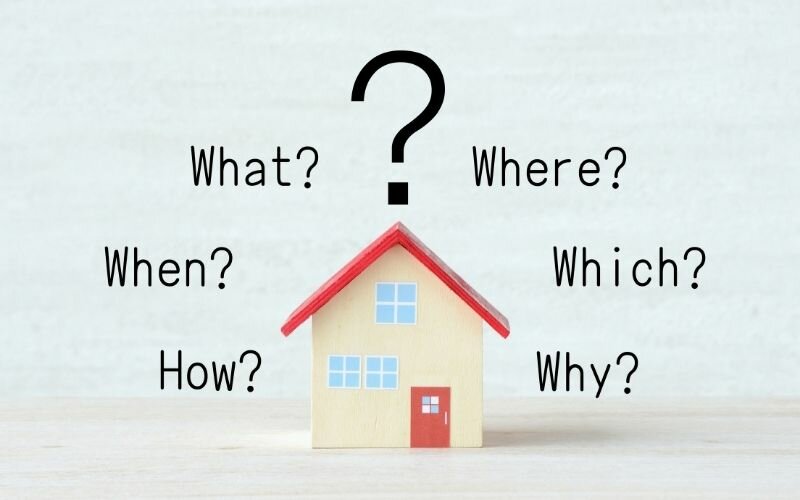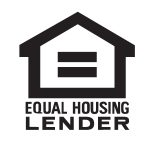Buying a house not only needs the best mortgage lender but also a sizeable down payment, and closing costs. Many people, however, are unable to fulfill their dream of becoming homeowners due to such obstacles.
The Federal Housing Administration (FHA) loan needs a minimum of 3.5% down payment to buy a house which increases the monthly installment. However, if you want to avoid mortgage insurance, you’ll have to pay a 20% down payment.
Want to know if you can tap the 401(K) funds to cover the closing cost and down payment? Here we’ll discuss the pros and cons of using 401(k) retirement to buy a home.
Continue reading to know more about 401(K)……………
What Is A 401(k)?
A 401(k) is a kind of tax-free retirement savings plan offered by several employers in the U.S. It lets employees to deposit a percentage of their pre-tax salary to a retirement account, where the savings accumulates until it is withdrawn.
According to the guidelines issued by the Internal Revenue Code of the IRS, 401(k) consumers can claim tax deduction, and can see their contribution growing over time.
Note: The access to the retirement account is limited. It means you can’t add contributions to a 401(k) account after a specific limit. Keep in your mind that there are penalties for withdrawing money if you haven’t reached retirement age. So, always understand the rules and limitations of a specific plan.
How much of 401(k) can be used to buy a house?
The maximum amount that you can borrow from a 401(k) account is upto $50,000 or 50% of the your account balance. You can use the money to pay the closing cost and down payment but not the monthly installments.
How does 401(K) works?
Step 1: Decide how much to contribute.
To begin with, decide the percentage of your pre-tax income you are ready to contribute to your 401(k) retirement account. Some employers also offer equal contributions.
Step 2: Your money is invested
Your employer may ask you to invest your 401(k) contributions in mutual funds or other alternative plans. The decision is completely yours.
Step 3: Your contributions Reduce Your Taxable Income
As your contributions are made pre-tax, they help reduce your annual taxable income. That means you can save more money for retirement without paying heavy taxes.
Step 4: Your Money grows tax-free
The benefit is your savings in the tax-free 401(k) account keeps growing until you withdraw it. This means you don’t have to pay taxes on
- Interest earned on your investments.
- Capital gains
- Dividends, or
Step 5: Withdrawals are taxed as income
The money you withdraw from your account in your retirement period is looked upon as income and thus is subject to be taxation at the market rate.
How to use your 401(k) to Buy A House?
Although 401(k) funds can be used to purchase a house, it is still not recommended. As it comes with significant risks and penalties if savings are withdrawn before the retirement age.
However, in specific circumstances, you may access your 401(k) funds for a down payment without incurring any penalties. Here are some ways that you can follow to use your 401(k) to buy a house:
1. Take a 401(k) loan:
If your employer’s plan allows it, you may be able to take a loan from your 401(k) to use as a down payment on a house. With such a loan, you can borrow up to $50,000 or 50% of your vested balance, whichever is less, and pay it back over a period of up to five years. While you will have to pay interest on the loan, the interest payments (typically between 1 to 2%) are paid back into your 401(k) account. Also, the repayment period is comparatively shorter than other loan programs. The amount must be paid before the upcoming date of filing the tax. Otherwise, the IRS will consider it a withdrawal.
What’s worth noticing is that you have to repay the loan money irrespective of your job status. Taking this loan freezes your 401(K) account which means you won’t be able to add any contributions.
Additional benefits of a 401(k) loan don’t consider your debt-to-income ratio, which means it won’t make any impact on credit bureaus. In a nutshell, a 401(k) loan doesn’t affect your odds of loan approval or credit score.
Tip: 401(K) loan is ideal for candidates with stable jobs.
2. Make a hardship withdrawal:
Generally, 401(K) withdrawal is not suggested as hardship withdrawals are subject to income taxes and a 10% early withdrawal penalty if you are under 59 ½ years old. In addition, withdrawing money from your 401(K) retirement account reduces the amount of money you will have in retirement plus it negatively impacts the growth of your investments over time.
But if you are struggling through financial hardship and need to make an immediate down payment then you may opt for hardship withdrawal as a last resort. You’ll be required to provide legal documents or other evidence showcasing your financial hardship, such as medical bills or repair estimates.
3. Use a Rollover:
A rollover refers to the money transfer from one’s own retirement account to another without paying any taxes or penalty. So, basically using a rollover means you are taking loan against yourself. It can be a 401(k) or similar employer-sponsored plan to an IRA or another employer-sponsored plan. The eligible candidates can withdraw a maximum of $10,000 cover the expenses of down payment or closing cost while locking the deal. You can use rollovers for:
- Consolidating Retirement Accounts
- Better Investment Options
- Or Changing Jobs.
All you need to do is contact your current retirement plan administrator and request a distribution of funds to initiate a rollover. Once approved, the funds are immediately transferred to your new retirement account, usually within 60 days.
Another alternative to avoid tax implications is the direct rollover, where the funds are transferred directly from your old retirement account to your new one.
Note: To avoid the potential tax liability and penalty, you have to complete the rollover within 60 days. As the distribution of funds is subject to income tax and a 10% early withdrawal penalty if you are under the age of 59 and 1/2.
What you should know about The CARES ACT:
Passed by the US Congress in March 2020, The CARES Act (Coronavirus Aid, Relief, and Economic Security Act) is a law that was designed to provide financial relief to individuals, families, and businesses affected by the COVID-19 pandemic.
This act allows the 401(k) account owners to make a penalty-free hardship withdrawal of up to $100,000. In addition, the bill also grants the account holder 3 years to pay the income tax, rather than being paid in the same year.
However, in April 2023, the national emergency pertaining to COVID-19 came to an end. For more details, we suggest consulting your 401(k) provider.
Is it Advisable to Use 401(k) To Buy A House?
When you withdraw money from your 401(K) means, it simply means you are taking debt against yourself. Technically 401(k) funds must not be used to buy a house as it comes with many penalties and consequences. For example,
- It will reduce the amount you’ll receive during your retirement.
- Your account will freeze until the loan is repaid, and
- You won’t be able to make contributions to your 401(K) account.
- It will halt your future growth, and so on.
Other Alternatives to Buy A House than using 401(k)
Always consider other options to pay for the down payment and closing costs than withdrawing funds from 401(K). Check below some of the best alternatives:
IRA (Individual Retirement Account):
An IRA is a type of investment account that allows people to save and invest for their retirement. The two major types of IRAs are traditional and Roth. The contribution limit (set by IRS) for both traditional and Roth IRAs is $6,000 for individuals under the age of 50, and $7,000 for individuals aged 50 and above.
A traditional IRA allows individuals to contribute pre-tax income, which reduces their taxable income in the year of the contribution. The money in the account grows tax-free, and withdrawals are taxed as income in retirement.
On the other hand, Roth IRA allows individuals to contribute after-tax income. The money in the account grows tax-free, and withdrawals in retirement are tax-free as well.
IRA also offers a special provision for first-time home buyers and allows them to withdraw up to 10,000 without any penalty. But one has to pay the state and federal taxes.
2. FHA (Federal Housing Administration) Loan
Such loans are insured by the FHA, a division of the U.S. Department of Housing and Urban Development (HUD). FHA loans have been designed specifically to make homeownership more accessible to low- and moderate-income borrowers, as well as first-time homebuyers.
One of the major reasons why people prefer FHA loans is they require a lower down payment than conventional mortgages. Let’s look at the various benefits of FHA loans:
- The minimum down payment for an FHA loan is 3.5% whereas it is 5% for conventional loans.
- FHA loans have more lenient credit score requirements. Borrowers with credit scores as low as 500 may be eligible for an FHA loan.
- FHA loans allow for higher debt-to-income ratios.
However, FHA loans also have some drawbacks. For example, borrowers have to pay mortgage insurance premiums (MIP), which can increase the overall cost of the loan. The borrower has to pay the MIP either in cash or it is adjusted throughout the entire loan term.
Additionally, the loan amount that you can borrow with FHA loans varies depending on your location and financial situation. We suggest you consult a mortgage professional to know whether or not an FHA loan is ideal for you.
3. VA (Veterans Affairs) loans
VA loans are government-insured, require no down payment, offer lower interest rates, and have flexible loan terms. Only military service members, veterans, and eligible surviving spouses can apply for this VA loan. It allows eligible borrowers to buy a house, even if they don’t have a large sum of money. Let’s discuss some of the major benefits of VA loans:
- VA loans don’t require private mortgage insurance (PMI), which can save borrowers money on their monthly mortgage payments.
- VA loans offer lenient credit score requirements than conventional mortgages. While the specific requirements vary, borrowers with credit scores as low as 620 may be eligible for a VA loan.
Let us tell you that VA loans do have some limitations such as the amount that can be borrowed with a VA loan varies by location. Borrowers may have to pay a one-time funding fee that helps offset the cost of the VA loan program.
In a nutshell, VA loans can be a great option for eligible borrowers who are looking to purchase a home.
Our Closing Remarks:
To sum up, we suggest 401(k) funds should be withdrawn only when there is no other alternative to cover the down payment. As discussed, it is advisable to consider other mortgage options like IRA, FHA, or VA that come with lenient requirements. Do you still have questions regarding how to buy a house? Make an appointment with a home mortgage expert today to determine the best loan option for you and get pre-approved.





